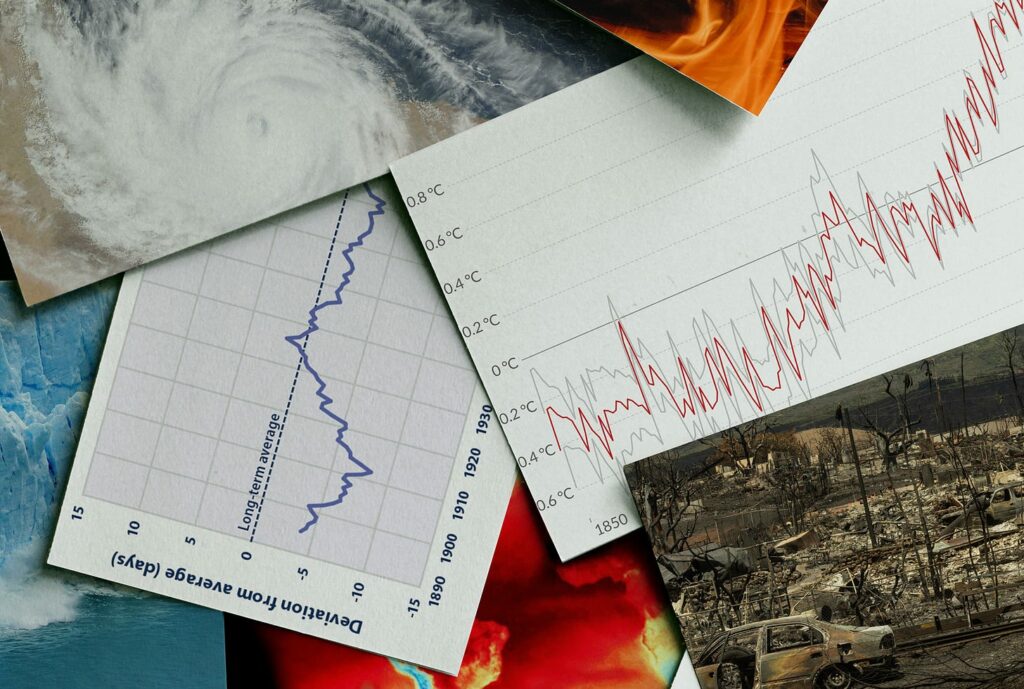Continuing University of Guelph professor Ross McKitrick’s look at Steven E. Koonin’s landmark book Unsettled: What Climate Science Tells Us, What it Doesn’t, and Why it Matters.
Steven Koonin spent years as an insider in government and academic circles where the climate crisis was taken as gospel. He began entertaining doubts after participating in a 2014 American Physical Society workshop on climate science where critics of the consensus were given time to present some arguments, which led him to check more of the basic data and scientific literature for himself. And that examination eventually led him to the realization not just that the science was off but that the scientific institutions we rely on to inform us about climate change have lost their objectivity. Including the Intergovernmental Panel on Climate Change, the US National Climate Assessment and even the US National Academy of Science. He remarks bluntly (p. 189) “when it comes to climate, those institutions frequently seem more concerned with making the science fit a narrative than with ensuring the narrative fits the science.” And in the early chapters of Unsettled he documents examples where they were caught “summarizing or describing data in ways that are actively misleading.” This problem is a big one, and with everything that’s now at stake, we have to find ways to fix it.
Of course when it comes to accounting for the hysteria around climate there is a lot of blame to go around. Koonin discusses the role of the media, activists and politicians who are caught up in self-serving promotion of narratives (usually alarmist and catastrophist) for either monetary or political reasons. But we hardly expect any better of them.
There might have been a time in the past when people expected the news media to be balanced and objective. Or maybe not: since 1956 the New York Times has made a big show of weighing presidential candidates carefully then endorses the Democrat every time. But if it were ever so, those days are long gone and the problem is getting worse not better.
It doesn’t help that, as many others have noted, the internet has forced news organizations to attract internet traffic to stay afloat, and the best way to do that is to become click-driven peddlers of sensationalism. Climate exaggeration fills that need. And people have adjusted their expectations of the media downward to match the collapse of journalistic standards. But we do expect better of the major scientific institutions.
We also expect better of scientists themselves, and Koonin doesn’t spare them. He says that many scientists not involved with climate research fall prey to a phenomenon he calls “climate simple.” The concept is borrowed from Dashiell Hammett’s 1929 novel Red Harvest in which he describes characters who get so deranged by extended participation in violence that they become “blood simple,” meaning prolonged stress renders them less intelligent. And “climate simple”, Koonin explains, occurs when “otherwise rigorous and analytical scientists abandon their critical faculties when discussing climate and energy issues.” The image is brilliant, and sadly accurate.
What then can be done? Koonin offers in Chapter 11 a proposal drawn from military planning and complex engineering projects: a Red Team. In a Red Team exercise, a group of experts is asked rigorously to question and pull apart someone else’s draft project, such as an expert report. As an Obama Administration insider, Koonin spent several years pushing for a Red Team review of the 4th US National Climate Assessment. And ironically he eventually got a hearing for his proposal during the Trump Administration. But in addition to opposition from some within the Administration itself it faced furious opposition from the Democrats, who even put forward a bill in the Senate to forbid any funding for projects that “challenge the consensus on climate change”—which as Koonin points out amounted to a shocking attempt to enforce a political orthodoxy on climate research.
It was also opposed by many people in the media and even from prominent scientists. Koonin explains that many of them are under the illusion that the existing report review processes are sufficiently adversarial and that no further challenge is required. But as Koonin explains (as have others, including me) the review process for IPCC and National Assessment reports are nothing like a Red Team. While the report drafts are subject to review, authors are free to ignore critical comments and to leave adverse data out of their writeup. If a one-sided author team is selected the review process won’t force them to be balanced.
In the end the Red Team idea was never approved. Koonin still believes it is needed, but I think it is 20 years too late for any government to pull it off. Even if a government came to support the idea, the research funding environment has been so warped for so long, and the alarmist narrative has been so dominant within academia, that it is hard to imagine finding a group willing and able to take on the job. No matter how good the Red Team report might turn out to be, the stigma attached to helping that side of the issue would scare away many potential participants. And there would still be the question of how a detailed Red Team report could cut through the noise and get communicated to the public.
Readers will probably be disappointed that there is no simple solution to a deep cultural problem that has overtaken large segments of the scientific community. Eventually, perhaps decades in the future, scientific truth will prevail. Especially as members of the public learn to dig into the data for themselves and not to place uncritical faith in what they are told "the science" says, even when the message is coming from scientific institutions we were once able to trust.
In the meantime, another kind of truth is going to prevail, but on a much shorter time scale: the truth concerning policy options.
Next week: The Chimera of Carbon-Free.



It is nearly impossible to have a calm rational discussion about climate changes with a climate alarmist. I've tried to find common ground on issues like urban heat sink effects or habitat loss and coastal development. While it can often start out well, it usually ends at the point where I am percieved as a Red Team member trying to burst their belief bubble.